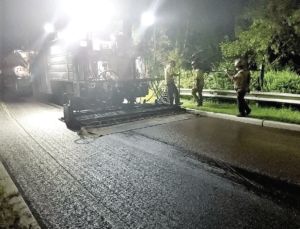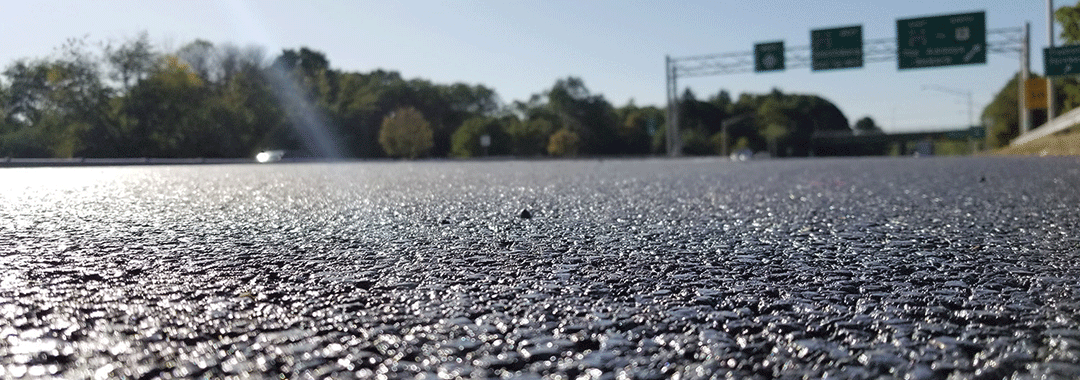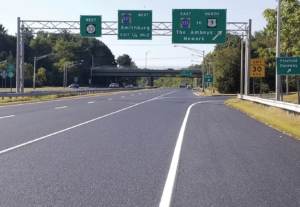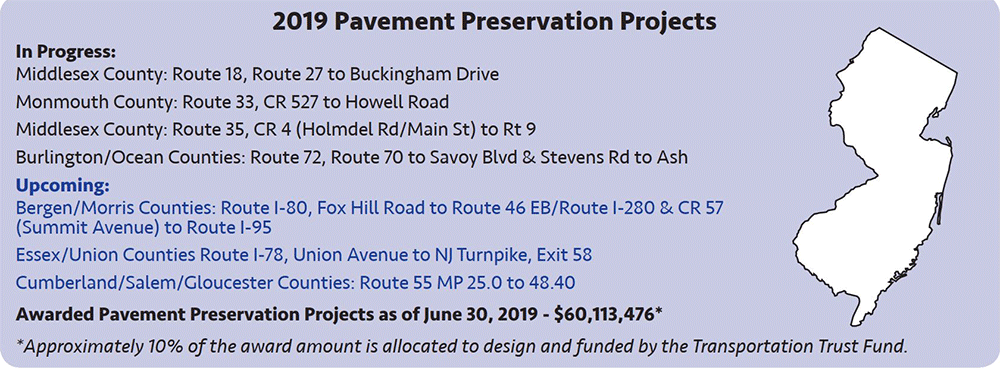Pavement Preservation Projects Benefit New Jersey Taxpayers and Commuters
The last Commitment to Communities newsletter (Volume 7) highlighted some of the wonderful volunteerism of New Jersey Department of Transportation (NJDOT) employees. In this volume, I will share how the NJDOT achieves consistent progress through focused investments that keep our infrastructure in a state of good repair. Not only does the NJDOT prioritize improving the quality of life for our residents, but we also take great pride in the preservation and maintenance of our transportation system for the benefit of all New Jerseyans.
Within the last decade, NJDOT has significantly increased our use of pavement preservation treatments and preventive maintenance. Instead of waiting until pavements deteriorate to poor conditions requiring conventional, more costly resurfacing or rehabilitation treatments, preventive maintenance treatments are being applied at a fraction of the cost to sections of roadway in good or fair condition.

Slurry Seal treatment being applied to the Route 33, CR 527 to Howell Road Pavement Preservation Project in Monmouth County.
The purpose of these treatments is to renew and seal the pavement surface and extend the functional life of the pavement by six to twelve years depending on the preservation method. Sealing the roadway prior to deterioration reduces the chances for water to infiltrate the pavement and therefore prevents the opportunity for potholes to form. Since preservation treatments are less expensive than traditional resurfacing (one third to one half of the cost) preservation becomes a more cost effective life cycle treatment strategy while also minimizing the opportunity for potholes to develop throughout the life of the pavement.
In addition to providing cost savings to the state (and in turn, the tax payer), these methods can be implemented without major traffic disruptions and with minimal lane closures—saving commuters time and frustration. Furthermore, these projects have an accelerated design and construction phase, with most projects completed in one year.
The method of pavement preservation is not an idea unique to NJDOT. This method is nationally accepted as a cost effective treatment in pavement life cycle strategy. As a Department, we participate in the North East Pavement Preservation Partnership (NEPPP), a regional component of the national pavement preservation initiative facilitated by the National Center for Pavement Preservation.
System preservation is a requirement under federal legislation MAP-21, the Moving Ahead for Progress in the 21st Century Act. MAP-21 offers much needed funds in transportation investment.
Because these preventive techniques are so beneficial, we have substantially increased our annual investment in pavement preservation projects from $3 million in 2013 to $50 million in the 2020 program. Over the last two years, we have successfully designed or delivered 22 projects. They reflect our commitment to be responsible stewards of the 27-cent gas tax increase.
We look forward to increasing our investment levels in future years.
Pavement preservation is just one example among many of how NJDOT is committed to keeping New Jersey’s roadways in a state of good repair and by doing so, improving the lives of our residents. I strongly believe that any opportunity where we can take a proactive approach and in turn save the state and taxpayer time, money and disruption is an opportunity worth investing in.
Once again, thank you for taking the time to read this and please feel free to share it with your colleagues. If you have any questions about any of the information in the newsletter, please feel free to contact NJDOT’s Office of Constituent Relations at 609-963-1982.
Diane Gutierrez-Scaccetti
Commissioner
This article first appeared in the Fall 2019 NJDOT Commitment to Communities Newsletter.




